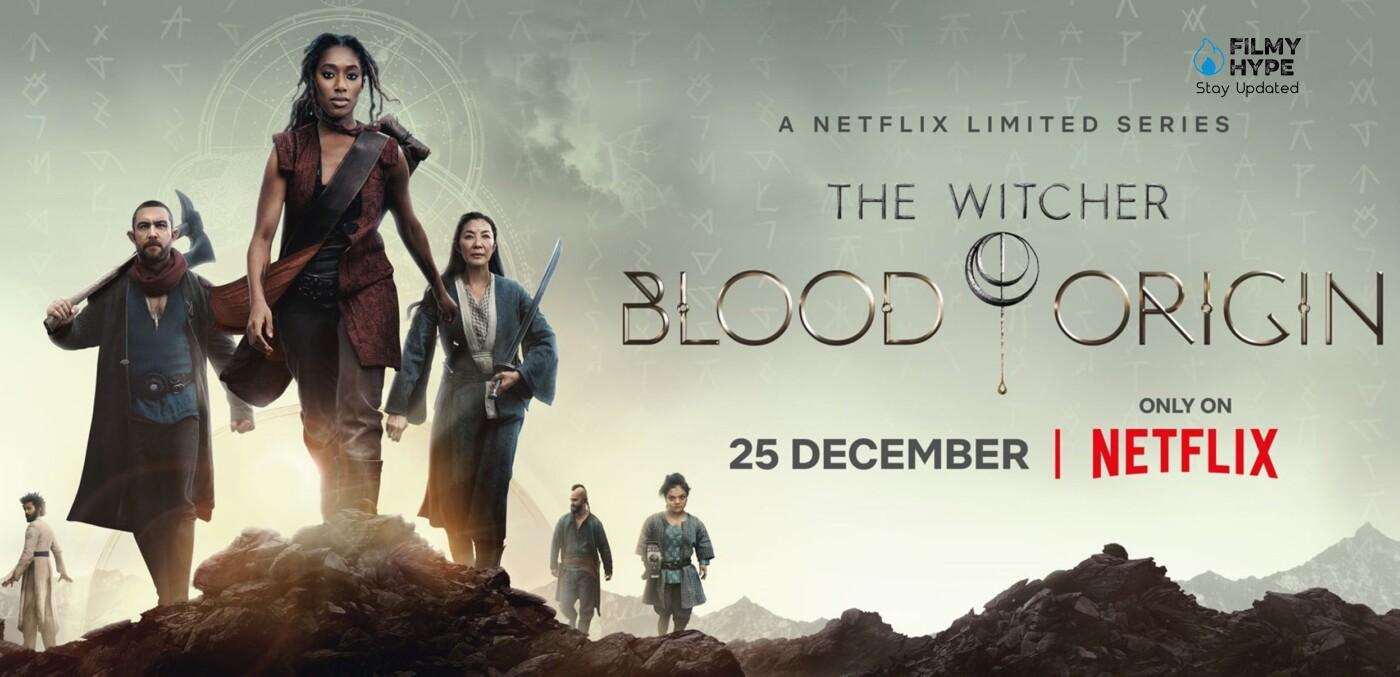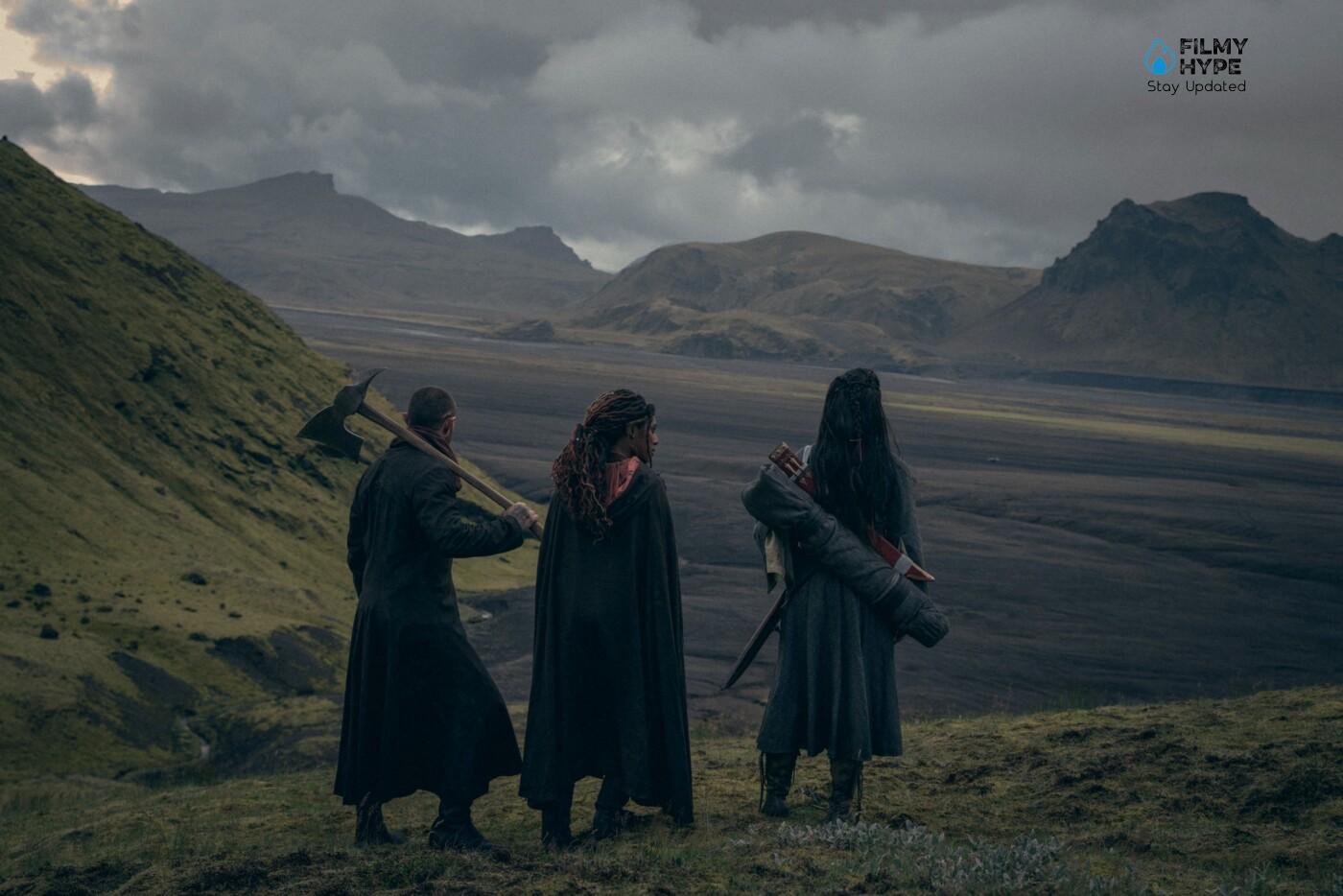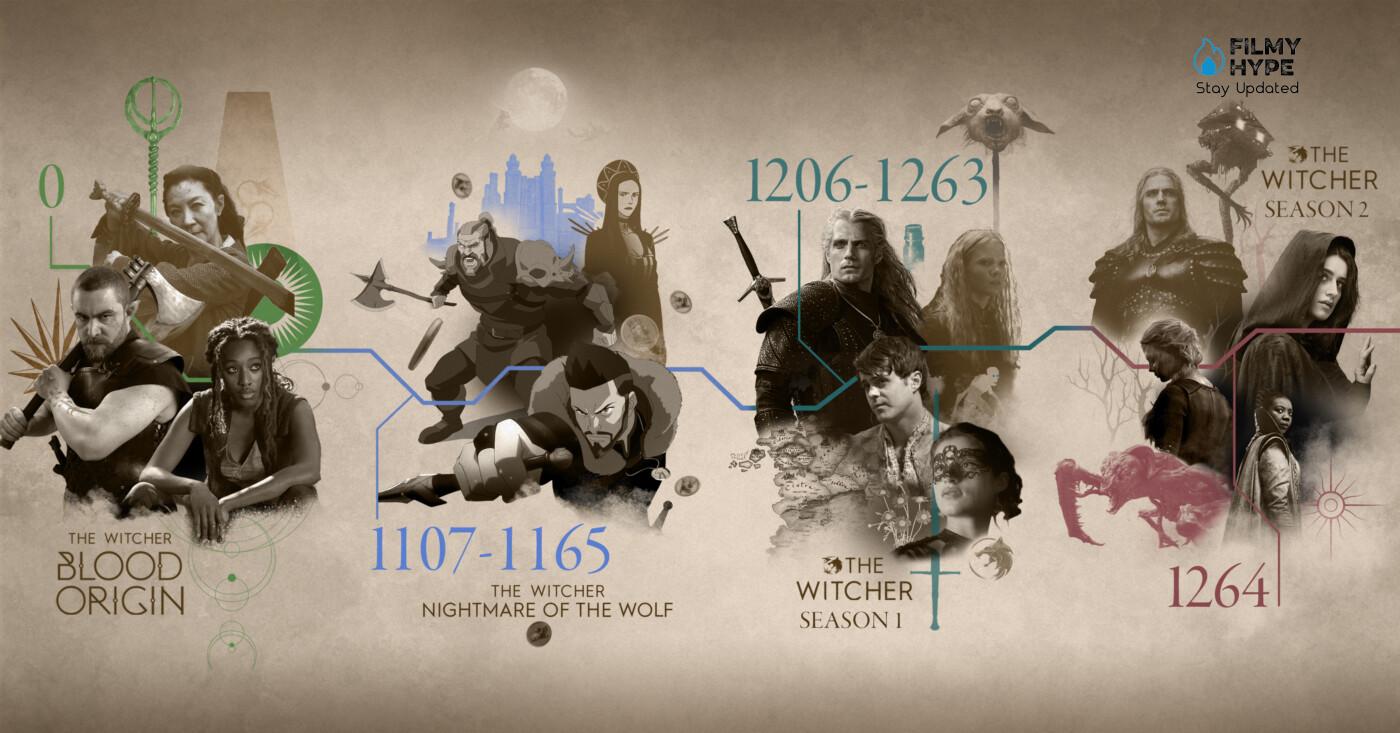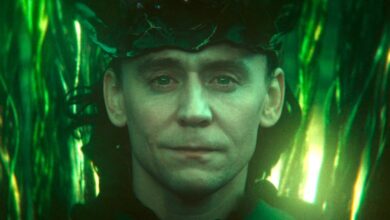The Witcher: Blood Origin Review: Netflix Desperately Tries To Fill A Major Void In Andrzej Sapkowski’s Universe
Cast: Sophia Brown, Michelle Yeoh, Laurence O’Fuarain, Lenny Henry, Mirren Mack, Nathaniel Curtis, Dylan Moran and more
Creator: Declan De Barra
Streaming Platform: Netflix
Filmyhype.com Ratings: 3.5/5 (three and a half stars)
Against all expectations from the platform, the first live-action spin-off of The Witcher saga on Netflix could fail even before its release. The Witcher: Blood Origin, an ambitious mini-series that intends to offer viewers more details on the origin of the universe created by Andrzej Sapkowski, seriously risks being boycotted by most fans. From a purely productive point of view, the operation itself appeared right from the start, especially if we consider that many spectators know practically nothing about the Continent and the history preceding the adventures of the Strigo. Following the multitude of elements included in the second season of the series (here is our review of The Witcher Season 2), with many changes to the original lore decidedly derivative compared to the source, showrunner Lauren S. Hissrich and the authors definitely needed to put together the pieces and justify their choices to give shape and coherence to their creation.

However, the dissatisfaction of the most passionate viewers, combined with the news of Henry Cavill’s farewell and the accusations leveled at the Netflix authors regarding their respect for the original material, has created all the conditions for Blood Origin to fail even before appearing in the eyes of the general public. Net of the avalanche of criticisms and approvals that are anything but encouraging, let’s delve into what was previewed on the show to offer a detailed look at the operation in its entirety. This miniseries of 6 episodes of about 50 minutes on average is the appetizer designed to broaden the borders of the mythology of the fictional universe proposed by the television production, since it will transport us 1,200 years before the events already presented, showing the origin of the first sorcerer and the events that led to the Conjunction of the Spheres … and its consequences.
The Witcher: Blood Origin Review: The Story
Sapkowski’s writing and anyone who has read the books knows it well, exploits the technique of focal approaches to the narration: traveling between several points of interest, often limited to a few characters or a few events, the Polish author has developed a world in which reign the unsaid and in which many elements are left (not to say left out) to the imagination of the reader. Intentional or not, the lack of foresight or insight has always been the main problem of the works on the Strigo, capable both of making the protagonists fall in love with them and of suffocating the setting. In this, the CD Projekt RED video games have undoubtedly contributed to putting order among numerous ideas, adding and creating if necessary, according to their plot but rarely going out of focus.
This was possible because the videogame saga was able to count on Polish personalities, madly in love with the saga and used to a certain type of narration, but above all, because the entire CD Projekt narration is based on an entirely canonical reality to tell a hypothetical perspective about Geralt’s future – far beyond the plot of the books. On the other hand, the path outlined by Netflix immediately aroused several doubts about the narrative management of Lauren S. Hissrich and her associates, and not just because of the political dimension of the platform. The showrunner has always professed a deep love for the saga and has expressed a sincere desire to transpose it in the best way to embrace the audience of the small screen, made up of numerous variables meticulously arranged on a path full of dangers.

The initial approach, broadly convincing in this sense, then underwent a clear change that divided the audience in an attempt to capture as many spectators as possible. Now, amid criticism for a project that is too derivative concerning the source, the only reason for the existence of Blood Origin reveals the clear difference in terms of the various productions. Declan De Barra, the main mastermind behind Blood Origin together with Hissrich, has indeed created a prequel that responds to the needs of curious or less erudite spectators, but first of all, it has created a basis that can appease one’s frustration with an author who is not attentive to outlining the founding elements of his universe.
The constant tension between authors and fans on the subject of adaptations is undoubtedly one of the topics that dominated 2022 on the small screen, even when it came to building something new starting from already existing elements. The writers want to tell the stories fans have always imagined, but in their way. In the case of the origin of the universe of The Witcher, recounting the events that led to the Conjunction of the Spheres without any actual reference places De Barra and his colleagues solely responsible for the success or failure of the product.
The Witcher: Blood Origin Review and Analysis
To ensure a coherent and cohesive future for the mother series, Netflix has thought well of telling the dark past of the Continent. Well 1200 years before the events known to all, and well before the existence of any Strigo, the world was completely different: around Xin’Trea (prototypical version of the kingdom of Cintra), the dominion of the Elves was unchallenged. Humans didn’t exist, much fewer monsters or Witchers, but even in a glorious context, peace found no place. Between intrigues and coups, betrayals and difficult loves, Blood Origin intends to tell the rise and fall of the old world until the catastrophe that changed it forever. The protagonists of these particular events are mostly outcasts and marginalized, often belonging to opposing factions, who find a common goal to subvert power and obtain freedom for the people. In this sense, The Witcher spin-off leaves no stone unturned and builds a story from start to finish which, however linear, intends to achieve its goal without a hitch.
As much as the effort made by the whole crew may be worth it, the narrative is the weakest aspect of the show. Blood Origin was conceived as a six-part project, then reduced to four only in the last stages of production. Observing the entire mini-series with this important information in mind, the idea is strengthened that this clean cut, both in terms of budget and in creative terms, has negatively affected the final quality of work already deficient in its construction. Apart from some high and really interesting moments, the show too often gets engulfed in caricatures, simplifications and slight forcings that lead the protagonists to appear aseptic and not very original, preventing the viewer from creating a noteworthy bond that leads him to care about the faces of the series. This is mainly due to the intention, perhaps intended but still badly implemented, to represent the seven characters as “characters” closer to the stereotype of legends than to the ideal of an engaging story.
In addition to the narrative aspect, Blood Origin has more than a few problems in managing the pacing. An excessively diluted beginning by off-screen voices and continuous contextualizations keeps the narration on the right path, but from the second episode, a frantic race begins to get to the end without finding the space to properly present or deepen the characters and their relationships. Some of these, in addition to being intuitable or guided, find little sense in such a rapid succession of upheavals. Despite this, after fueling the show it shows excellent action sequences on several occasions and presents some faces that we could most likely see again in the next seasons of The Witcher. The continuous change of antagonist, meticulously orchestrated to alternate the focus on one or the other subject, fails to fully show the depth of complex characters only on the surface, relegated in decisions and consequences to madmen without art or partly incapable of instilling the right fear.

The idea of actively inserting power as a real enemy is certainly the most appreciable in this sense, useful for rotating the plot between political games and plot twists that constantly try to amaze. Blood Origin is represented by some of its protagonists, between welcome surprises and unexpected returns: Princess Marwyn, played by Mirren Mack, manages to offer enough facets to constantly intrigue about her intentions and actual abilities until her undeserved ending, while the nice Meldof, played by Francesca Mills, is certainly the most appreciable character among those presented in the show. The two real protagonists of the story, Laurence O’Fuarain’s Fjall and Sophia Brown’s Eile, show all their commitment in entering their respective roles, however only partially convincing.
The much-talked-about presence of Michelle Yeoh, definitely the personality of the year, doesn’t do justice to the other jobs she’s taken part in this season and shows only brief flashes of charm. Between elements that touch the meta-narrative and small (but big) upheavals of the canon, not all the decisions taken by the production appear successful. The presentation of the protagonists is coherent, as are the plot and the relationships presented by exploiting the marvelous location of Iceland, but one never perceives the real sensation of being in the world of the Continent except for a very few moments. Fans of the saga may rejoice in noting particular details and characters that are important for the continuation of the series, but the changes made appear too sudden and heavy to digest.
The Future, Beyond Universes
Despite its great premises and a very intriguing concept, Blood Origin offers too little to fully convince and borders on mediocrity on several occasions. The production system, some objectively spot-on choices and a few moments of glory from the cast manage to lighten the weight of the defects, but they cannot save the show from a much bigger problem than its production microcosm. What has always made Sapkowski’s world fantastic are the characters: archetypal in appearance, but extremely complex once they get to know them properly. This prequel attempts to similarly replicate a style that doesn’t belong to it, hoping that viewers will be intrigued enough to follow through to the end. Nothing shown is comparable in narrative quality to the reference works, let alone the flagship series.
However, between its ups and downs, Blood Origin confirms how much potential and opportunities a fantasy world of this genre can offer. The resolution of this subtle balance once again shows the main diatribe on modern adaptations: the creative concentrates on creating, putting in order something made by others following his authorial creed, mixing other people’s elements with their own, or creating space where absence reigns. The trend towards the production of fantasy prequels that has characterized this television season has allowed us to notice several interesting aspects, both as regards the creative trends of modern America, and as regards the opinion of the public (far from extremism).

The intention to make the marginalized prevail, a theme now reiterated almost everywhere, fails to gain a hold on the observer if there is no solid basis that makes struggle, suffering, or changes fascinating. Taking into consideration the trend of opinions on productions similar to this one, a recurring motif appears extremely evident: when knowledge of a work is overwhelmed by the desire to surpass it, the result is worse the further one moves away from the origin. The Witcher: Blood Origin will be able to entertain the less demanding audience during the Christmas period, but it will not be able to revive the fortunes of the franchise in a delicate period like this.
The Witcher: Blood Origin Review: The Last Words
The Witcher: Blood Origin tries in every way to entertain the viewer in full Netflix style. The action is well orchestrated, and the characters do their best to appear interesting, but the approach to the storytelling is far too simplistic and rushed to win the hearts of the viewers. Some performances, small ideas and appreciable appearances are not enough to revive the fortunes of a franchise that is on the verge of crisis due to the choices of its authors. The Witcher: Descent of Blood has a hard time finding the tone. Fortunately, it has a reward, since it is taking shape as new characters emerge and join the group, but in any case, it is a somewhat lukewarm appetizer before the premiere of the third season of The Witcher, the last one in which we will see Cavill.







